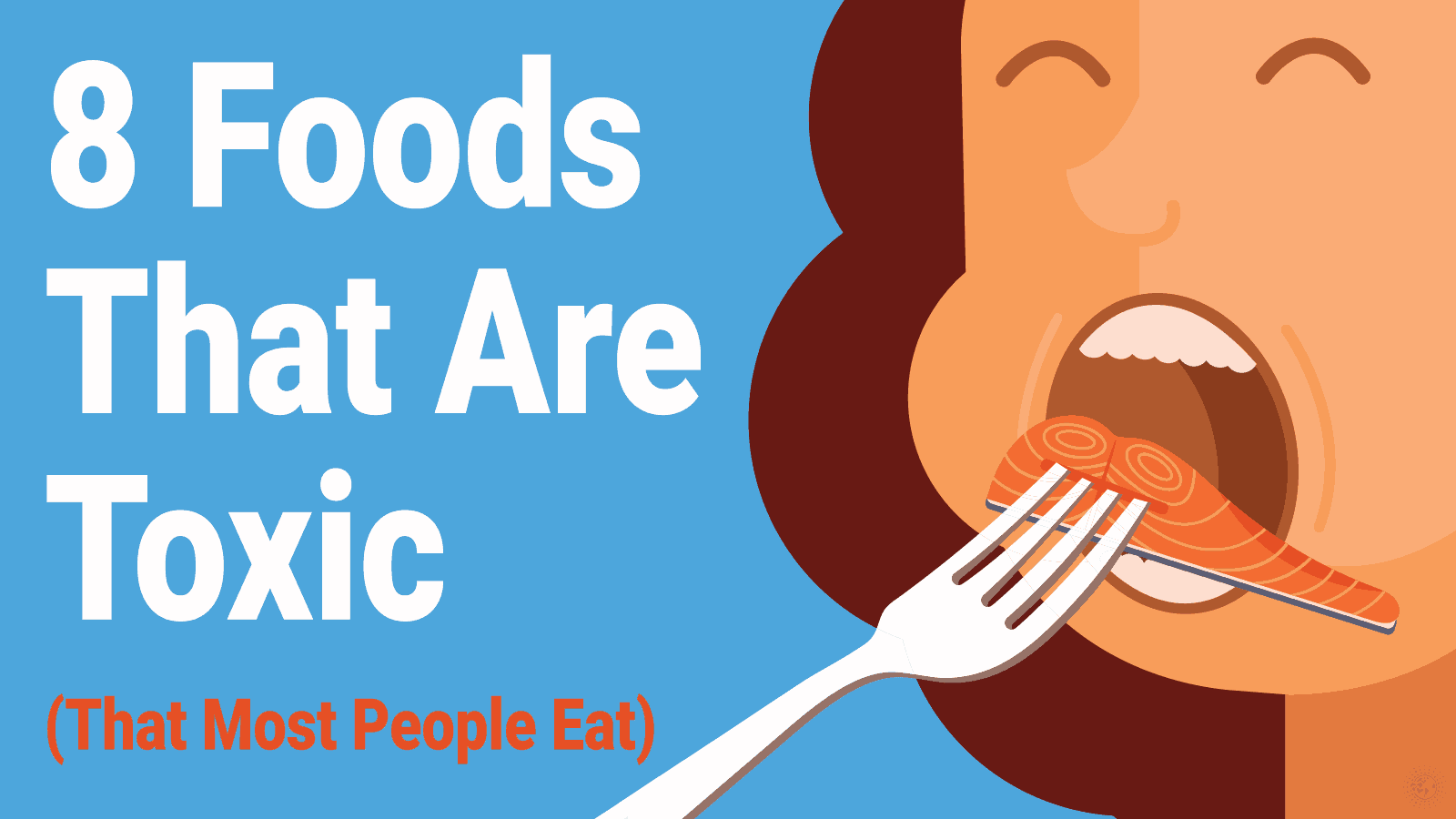Diet is extremely important to almost all aspects of your health. After all, you are what you eat. With a growing obesity epidemic in almost every developed country in the world, keeping track of what you’re eating has never been more important. We’ve all read the stories about the toxic foods that you think are healthy but really aren’t. However, did you know that there are some food items in your kitchen pantry that aren’t merely unhealthy, but also downright toxic?
If you’re not careful, you might actually be putting your life in danger. We’re not talking allergies, but toxins hidden in everyday groceries you probably buy regularly. Here are some foods that you probably didn’t know could cause damage to your health.
Here Are 8 Toxic Foods (That Most People Eat)
“Your diet is a bank account. Good food choices are good investments.” – Bethenny Frankel
1. Green tomatoes
Surprised? Everyone says that tomatoes and all other kinds of vegetables are healthy, not toxic. However, tomatoes actually contain a poisonous component called solanine, an alkaloid that can cause a very fussy stomach. This dangerous alkaloid is mainly found in the stems and leaves of the tomato plant, and in green (unripe) tomatoes. Technically, solanine can’t actually kill you – you’d have to consume a lot of it for that to be the case. Still, avoid eating those parts of the tomato plant and your stomach will thank you for it!
2. Green Potatoes
A staple of any diet, potatoes can be found in almost any traditional cuisine around the world. However, solanine, which we mentioned regarding tomatoes, is also found in potatoes. In this case, it is found in the vegetable itself. It comes in much higher concentration, as this element serves as the potato’s natural defense mechanism against vermin. Solanine can cause stomach upsets but also headaches, diarrhea, and even paralysis or coma. To be careful, avoid potatoes that have a green tinge; throw these potentially toxic foods away instead of consuming them.
3. Apple seeds
One of the most delicious fruits also hides dangerous toxins. Apples have a chemical in their seeds called amygdalin, which partially contains cyanide. While you can’t really eat enough to poison yourself, you should still be careful because this chemical can cause unpleasant stomach upsets and headaches. Whenever you’re eating apples, or any fruit with pits and seeds, stay away from those seeds as much as you can.
4. Tuna
Most canned tuna is absolutely safe in controlled portions; however, some tuna contains amounts of mercury, which can be toxic. Some doctors even recommend that pregnant women abstain from eating tuna as it’s easier for the baby to absorb the mercury. Either way, it’s always good to monitor your tuna intake and make sure you’re not eating too much of it, as it can cause serious stomach upsets.
5. Peanuts
On the surface, it doesn’t seem like peanuts should be considered one of the potentially toxic foods. However, peanut allergy is the most common type of allergy in the U.S. and the anaphylactic shock that comes as a result of this allergic reaction can be very extreme and even cause death. It’s not just peanuts – things like peanut butter or peanut oil can also trigger it. You might not even know if something you’re eating contains traces of peanut, so if you’re allergic, be very careful and always check out the ingredient list when shopping.
6. Raw Almonds
Almonds are very healthy and really good for children to eat, as they’re beneficial in developing the brain. However, bitter (or raw) almonds can often contain cyanide, which is highly toxic. This is also found in wild almonds. In fact, there have been cases of almonds being recalled from organic food stores because their levels of cyanide were too high. Cyanide poisoning is reversible, but if you see any of the signs you should contact your doctor straight away. Also, avoid any almonds that market themselves as “raw,” “wild,” or “organic.”
7. Rhubarb Leaves
Great for baking, but not so great to eat whole. If you enjoy the sweet, tangy taste of rhubarb, make sure to always cut off the leaves first. They are considered toxic foods because they contain a dangerous chemical called oxalate, which can cause kidney stones. Fortunately, you would have to consume large quantities to be affected – and you probably won’t just start eating rhubarb leaves anyway (but don’t experiment with it, because you never know).
8. ‘Raw’ Cashews
Maybe as part of your latest diet, you’ve taken to buying “raw” cashews at the supermarket. The truth is, they aren’t raw, and there’s a good reason why: cashews grow in a toxic shell that comes from the same family as poison ivy and poison sumac. All cashews that we eat are processed to get rid of the anacardic acids that can be found both in the shell and the oil that comes from it. So, make sure to stay away from any unshelled cashews you come across.
Final thoughts
It’s not really fun to know that a variety of the foods in your pantry or fridge are potentially toxic. As long as you take reasonable precautions and don’t experiment unnecessarily, you should remain perfectly healthy. At the same time, always make sure to double check the ingredients on anything, especially if you have an allergy. This precaution may protect you from toxic foods and end up saving your life.
https://youtu.be/KKB0jThAfnQ















